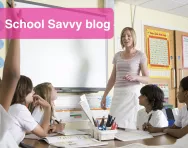Important update from TheSchoolRun
For the past 13 years, TheSchoolRun has been run by a small team of mums working from home, dedicated to providing quality educational resources to primary school parents. Unfortunately, rising supplier costs and falling revenue have made it impossible for us to continue operating, and we’ve had to make the difficult decision to close. The good news: We’ve arranged for another educational provider to take over many of our resources. These will be hosted on a new portal, where the content will be updated and expanded to support your child’s learning.
What this means for subscribers:
- Your subscription is still active, and for now, you can keep using the website as normal — just log in with your usual details to access all our articles and resources*.
- In a few months, all resources will move to the new portal. You’ll continue to have access there until your subscription ends. We’ll send you full details nearer the time.
- As a thank you for your support, we’ll also be sending you 16 primary school eBooks (worth £108.84) to download and keep.
A few changes to be aware of:
- The Learning Journey weekly email has ended, but your child’s plan will still be updated on your dashboard each Monday. Just log in to see the recommended worksheets.
- The 11+ weekly emails have now ended. We sent you all the remaining emails in the series at the end of March — please check your inbox (and spam folder) if you haven’t seen them. You can also follow the full programme here: 11+ Learning Journey.
If you have any questions, please contact us at enquiries@theschoolrun.com. Thank you for being part of our journey it’s been a privilege to support your family’s learning.
*If you need to reset your password, it will still work as usual. Please check your spam folder if the reset email doesn’t appear in your inbox.
AI in primary schools: empowering or alarming?

Is this a scary Terminator takeover, or something potentially positive and exciting? Will it benefit children’s learning or simply make a teacher’s life easier? Rest assured; robots aren't replacing teachers. AI is simply the next advanced tool that educators can harness to help children learn even better.
Here are a few ways it is already being used in classrooms:
Boosting confidence with AI feedback
AI tools can help to create assessments, quizzes and activities in the blink of an eye. These can help teachers quickly and effectively identify areas of strength but also things your child needs to work on to improve. Some AI tools can also provide effective feedback and respond to children’s answers. Picture your child's confidence soaring with tailored guidance, helping them grasp concepts quicker and avoid frustration.
Crafting personalised learning paths
Every child learns differently. AI can analyse your child's strengths and weaknesses, crafting personalised learning paths that cater to their individual needs. Think interactive games that adjust to their pace, or reading apps recommending books based on their favourite characters. Your child’s teacher still needs to be in the driving seat, but the potential for AI to help teachers provide bespoke learning for each child is astounding.
Enhancing creativity in the classroom
Teachers have always been able to inspire children with creative and exciting ways to present learning. Now, with AI in their teacher toolkit, they can take these experiences to a new level. Your child’s teacher can quickly craft resources, such as an interactive tale in which the characters react to your child’s choices.
For example, questions can be posed to book characters with the AI responding in real time, helping children to really get underneath the story and understand key aspects of the text in an engaging and entertaining way.
This would not only boost their English skills but also encourage critical thinking and problem-solving. Best of all, these can be made specific to the topic or skill your child is working on. It’s like a choose-your-own-adventure tailored to your child’s education.
Maximising teachers' time
Marking, lesson planning, admin tasks – the list goes on. A teacher’s day is never done. AI can help them to automate some of these time-consuming chores, freeing up teachers to focus on what they do best: fostering individual growth and building relationships with your child. Imagine teachers having more time to answer questions, celebrate achievements and make learning truly magical.
Parent concerns about AI in primary school
As this new age dawns upon us, there are still many things that need to be considered...
- Ethical considerations like data privacy and ensuring fair AI algorithms are crucial
- Teacher training and support to integrate AI effectively
- Transparency about the AI algorithm and decision-making between schools and parents
- Concerns about over-reliance on technology.
These issues need to be at the forefront of the conversation as we continue to integrate AI technology into our day-to-day lives. Open discussions between schools and caregivers is paramount.
However, like a well-told bedtime story, the potential of AI in primary schools is just beginning to unfold. With careful planning, responsible implementation and transparent communication and information, this emerging technology can become a powerful tool for unlocking the potential of every young learner, one exciting chapter at a time.
Matt Revill is a primary school headteacher with over 20 years experience of working in schools. He has worked in a range of settings and currently works within a multi-academy trust of 14 schools. In his free time, he enjoys reading, computing, holidaying and spending time with his family and friends. Matt has a son who is currently working his way through A-levels at college.







